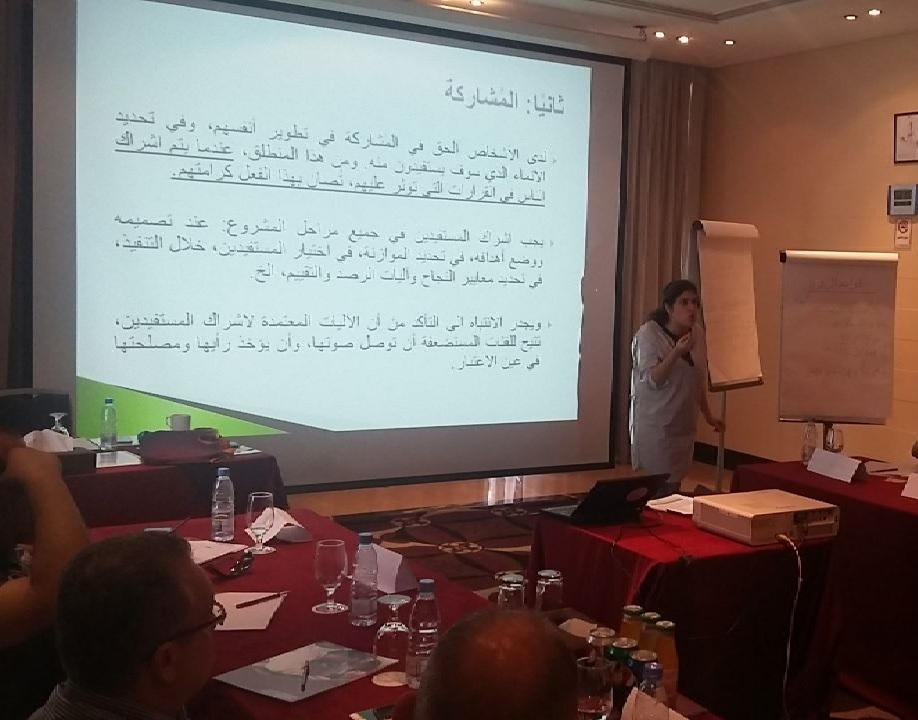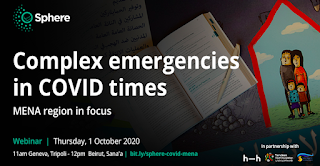Local humanitarian Leadership and a moral capacity development approach
In two days I would have been in Iraq for a full year,working for Oxfam or as I tell our local partners working for you through Oxfam!
For those who do not know it, Oxfam is an international confederation of 20 organizations working together with partners and local communities in more than 90 countries to end injustices that cause poverty.
One of the things we do best in this organization is Learning Reviews, one of the things we need to invest more in in this war ridden region is Learning!
As such, I am committed to share through this blog articles and findings about establishing partnerships and developing capacity of national actors, something I have been doing for the last 4 years with Oxfam directly and indirectly through all of my career and some would say personal life.
If all sectors have their own jargon, the humanitarian sector is particularly blessed in this area.
even the best among us have had at one time or another to nod their heads in acquiescence when an acronym was mentioned without even knowing what it referred to, to secretly Skype colleagues in a hurry asking: what the hell does LHL refer to! Ahhhh Local Humanitarian Leadership ... Indeed!
So, what is really LHL and where does Capacity development or building and ethics come in this picture:
'Local humanitarian leadership is built upon the premise that humanitarian action should be led by local humanitarian actors whenever possible', yet research shows that this is rarely the case ...
I am not personally a big fan of the word local, and my philosophy in development goes always through the channel of deconstructing standards and a questioning norms, as such my first question would be : Why LHL.
Because people in need and those closest to them geographically and culturally know best the extent of this need, the intricacies of the context they live in and the way to navigate these. And because a commitment to help should always take limited resources into consideration and carry in itself the seeds of its transformation.
From Helping those in need, to supporting those in need help themselves, to working with people no more in need better develop their countries and reaching a better quality of life.
This is, lyrically put the transition from an Emergency response, to Resilience Building, Early Recovery and finally Development.
Now we know that it's about empowering local actors we need to know the How this could be achieved:
A couple of years ago, I was having a discussion with a local NGO's Director in Syria , needless to say the conditions these people work under are excruitatingly difficult and have been for 7 years. The man who was dealing with crisis upon crisis was a particularly sensitive musician who had a high sense of commitment to supporting people and a moral fibre I have rarely seen, that is why I remember his words quite clearly maybe:
'' Dima, we do need money to help people, but the things you are giving our team cannot be bought.
He was referring to a particular training workshop I had led and that he wanted to duplicate.
I nearly cried. Syrian people have a talent to make you cry... must be contagious.
the je ne sais quoi in our training he was referring to, was what I call : a ethical vision of capacity development. And he was right in the sense that you can buy a trainer but you cannot buy a commitment to moral standards... many institutions have tried though!
Supporting a local Humanitarian Leadership needs to go through what we call Capacity Building or what I call a Moral Capacity Development, where the right knowledge is shared with local organizations to support them support people and grow as organizations and where the humanitarian moral principles are conveyed every step of the way. if the main dish is technical input, the binding sauce needs to be the commitment to morality and ethics and these no matter what you have been told, are not that relative in the contemporary world.
if you want to know where you are going, you should better understand where your coming from. If you want to fight poverty, you need to have people aware of the riches they have within. when an Arab n Iraq is providing support to a Kurd or vice versa neither is engaged in charity, but they are both aware of their rights and obligations in the humanitarian equation and both should act accordingly.
Building local actors capacity is not creating this vision, but finding those who already have it and work closely with them to better articulate it, spread it and translate it into programmes and activities.
Because it is not only about teaching others how to fish, but better understand and know whether they liked fish, needed fish or simply were looking for a mean to overcome their hunger for more than food... after all : It's not by bread alone that we live.
Dima EL SAYED
Ex- Partnerships and Capacity Development Manager
Oxfam IRAQ
For those who do not know it, Oxfam is an international confederation of 20 organizations working together with partners and local communities in more than 90 countries to end injustices that cause poverty.
One of the things we do best in this organization is Learning Reviews, one of the things we need to invest more in in this war ridden region is Learning!
As such, I am committed to share through this blog articles and findings about establishing partnerships and developing capacity of national actors, something I have been doing for the last 4 years with Oxfam directly and indirectly through all of my career and some would say personal life.
If all sectors have their own jargon, the humanitarian sector is particularly blessed in this area.
even the best among us have had at one time or another to nod their heads in acquiescence when an acronym was mentioned without even knowing what it referred to, to secretly Skype colleagues in a hurry asking: what the hell does LHL refer to! Ahhhh Local Humanitarian Leadership ... Indeed!
So, what is really LHL and where does Capacity development or building and ethics come in this picture:
'Local humanitarian leadership is built upon the premise that humanitarian action should be led by local humanitarian actors whenever possible', yet research shows that this is rarely the case ...
I am not personally a big fan of the word local, and my philosophy in development goes always through the channel of deconstructing standards and a questioning norms, as such my first question would be : Why LHL.
Because people in need and those closest to them geographically and culturally know best the extent of this need, the intricacies of the context they live in and the way to navigate these. And because a commitment to help should always take limited resources into consideration and carry in itself the seeds of its transformation.
From Helping those in need, to supporting those in need help themselves, to working with people no more in need better develop their countries and reaching a better quality of life.
This is, lyrically put the transition from an Emergency response, to Resilience Building, Early Recovery and finally Development.
Now we know that it's about empowering local actors we need to know the How this could be achieved:
A couple of years ago, I was having a discussion with a local NGO's Director in Syria , needless to say the conditions these people work under are excruitatingly difficult and have been for 7 years. The man who was dealing with crisis upon crisis was a particularly sensitive musician who had a high sense of commitment to supporting people and a moral fibre I have rarely seen, that is why I remember his words quite clearly maybe:
'' Dima, we do need money to help people, but the things you are giving our team cannot be bought.
He was referring to a particular training workshop I had led and that he wanted to duplicate.
I nearly cried. Syrian people have a talent to make you cry... must be contagious.
the je ne sais quoi in our training he was referring to, was what I call : a ethical vision of capacity development. And he was right in the sense that you can buy a trainer but you cannot buy a commitment to moral standards... many institutions have tried though!
Supporting a local Humanitarian Leadership needs to go through what we call Capacity Building or what I call a Moral Capacity Development, where the right knowledge is shared with local organizations to support them support people and grow as organizations and where the humanitarian moral principles are conveyed every step of the way. if the main dish is technical input, the binding sauce needs to be the commitment to morality and ethics and these no matter what you have been told, are not that relative in the contemporary world.
if you want to know where you are going, you should better understand where your coming from. If you want to fight poverty, you need to have people aware of the riches they have within. when an Arab n Iraq is providing support to a Kurd or vice versa neither is engaged in charity, but they are both aware of their rights and obligations in the humanitarian equation and both should act accordingly.
Building local actors capacity is not creating this vision, but finding those who already have it and work closely with them to better articulate it, spread it and translate it into programmes and activities.
Because it is not only about teaching others how to fish, but better understand and know whether they liked fish, needed fish or simply were looking for a mean to overcome their hunger for more than food... after all : It's not by bread alone that we live.
Dima EL SAYED
Ex- Partnerships and Capacity Development Manager
Oxfam IRAQ



The concept of understanding what the Local organisation's want and identifying which will work for them are one of the core concepts of humanitarian capacity development for LHL. Thanks for the reflections Dima.
ReplyDeleteThank you ! I am just noticing that without emojis it has become difficult to share our appreciation !
Delete